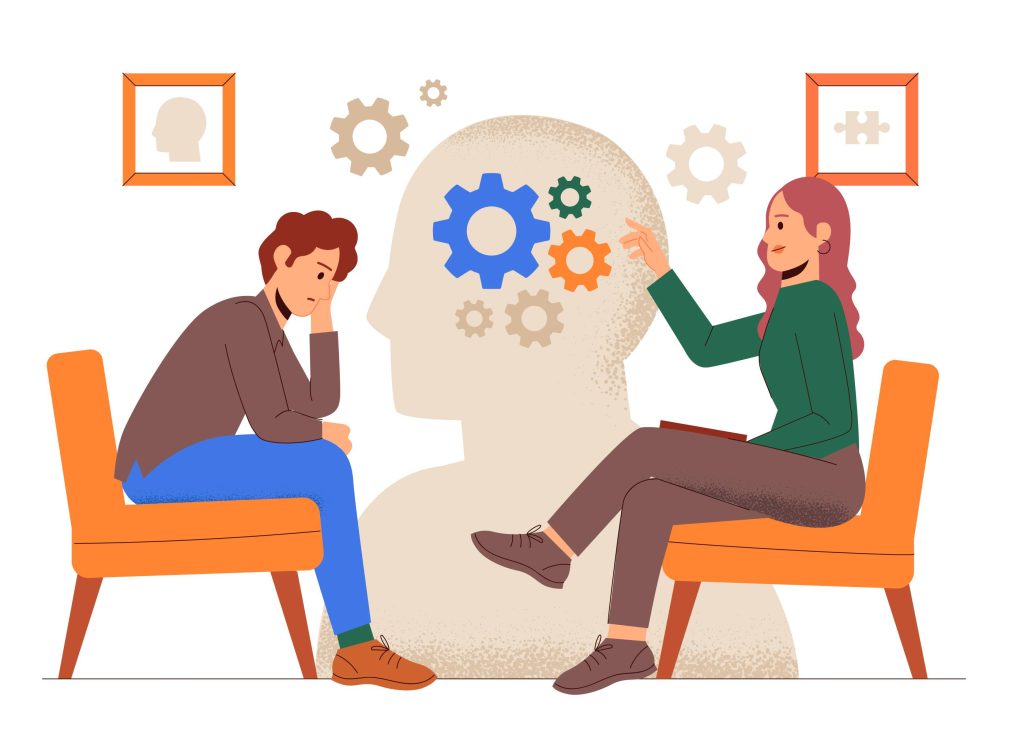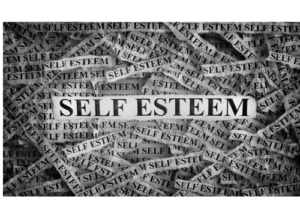If you’re new to the term “emotional eating,” reflect on these questions below:
Do you eat to feel better (to comfort yourself when feeling upset, angry or anxious)?
Do you use food as reward or an incentive?
Do you feel like food is a friend?
Do you unwittingly turn to food when you’re bored or simply need to while away time?
Do you share a love-hate relationship with food?
What is Emotional Eating?
“When feeling unloved, facing rejection/ even processing the pain of rejection, or feeling abandoned, you want to make the pain go away. In an attempt to defend yourself from such pain and insecurity, you seek comfort and security through different means – food, being one of them.” – Kunjal
Thus, emotional eating is turning to food for comfort, for relief from a distressing emotion, as a reward or an incentive or out of any emotional state rather than to satisfy hunger.
How is Emotional Eating Different from Eating out of Hunger?
• Emotional eating may involve craving for specific kinds of ‘comfort’ food – while hunger does not. Hardly will you crave for vegetables or ‘healthy’ foods when it is out of an emotional cause. In fact, there’s a tendency to crave for foods high on sugar content or fats is more, when it is for an emotional need.
• Emotional hunger can come on suddenly – in response to a trigger, a situation or an emotion, as opposed to physical hunger, which tends to build gradually.
• You may be less aware of how much you’re eating when there’s emotional hunger. You may suddenly realize that the entire packet of chips is empty or you’ve finished the whole bar of chocolate without really experiencing it.
• Emotional eating makes you feel guilty and ashamed after having eaten, as opposed to eating for physical hunger – which makes you feel content and calm.
How are Eating and Emotions Related?
Food as a means of exercising control:
“When emotions are experienced as overwhelming i.e. when there is a belief that ‘I cannot tolerate this emotion’, there is a need to do something about the feeling. One starts feeling helpless and feels the urge to do something to alleviate the experience of the emotion.” – Namrata
It is in such a state of helplessness, feeling out of control, that emotional eating comes in as a ‘relief’ – a) more directly as a result of consuming food containing sugar or fats, which are physiologically are capable of having a calming, soothing effect and b) because the act of eating distracts us from experiencing the disturbing emotion and gives us the feeling that we are ‘doing’ something and so are not totally helpless.
Food as a means of seeking nurturance:
Food is unconsciously associated with nurturance since we are born – of being fed, being looked after and a feeling of safety. Thus, one may find themselves binging on food, when they are looking for comfort.
“It’s not an uncommon scene to watch mothers forcing their little ones to eat and the mothers themselves feeling guilty if their child hasn’t eaten well.” – Megha.
Food as coping mechanism for survivors of abuse:
Some of the survivors of sexual abuse eat a lot so as to gain weight as a means of protecting themselves from unwanted attention or sexual advances. On the other extreme, they may starve themselves of food over the feeling that they don’t deserve anything good.
“Individuals who have experienced neglect, abuse or deprivation in their childhoods may have a tendency to hoard food, as food is associated with nurturance, which they may experience a lack of.” – Ashwini
Treating oneself harshly: The lack of self-worth
“Back in the days, most of us woudl feel happy about a meal and not bother talking about it. Now after every meal, we tend to analyse every bit of it. Can you imagine how exhausting it is? To constantly feel guilty, sad and get worked up after everything we eat!” – Nandita
This tussle sometimes, is really between yourself and your Inner Critic – the part of you that constantly tells you to keep doing better, pointing out your flaws – at times keeping you motivated but often, making you feel like you are not good enough!
The Inner Critic sometimes believes strongly in either or all of the following, each of which, realistically speaking, may be extremely idealistic:
• I must look and be perfect
• I must not make any mistakes
• Everyone must like me
“The Inner Critic ties our self-worth, the way we feel about ourselves, tightly to the realisation of these beliefs. It makes you believe that if these expectations aren’t met, you aren’t good enough. Thus, the Inner Critic has us on a leash, constantly asking us to strive for most ideal standards.” – Sindhura
Thus, when self-worth becomes dependent on such unrealistic expectations, the tendency to be self-critical can show itself in making us feel extremely conscious about our eating habits and giving rise to guilt.

Understand And Practice Mindfulness Through Our 'Free Mindfulness Videos'
Aiming for perfection: The role of guilt
“We live in the generation of constantly being preoccupied with our dietary needs and fitness goals. We are all very self-conscious.” – Michelle
Usually, the problem does not lie in aiming for healthy weight and then making efforts to maintain it. The issue really is the intense need to go beyond and attain perfection, the definition of which itself, can be very subjective and often dictated by society.
“Anyway once the ‘ideal’ weight is attained, we find it difficult to accept even a slight change in the measurements and if there is an increase the automatic thought would be- “I guess I ate too many sweets yesterday” rather than thinking about other contributing factors like stress or hormonal changes.” – Gitali
Instead of eating healthy or exercising most of us spend time feeling really guilty about eating and not exercising. Overwhelming guilt could lead you to stay away from certain foods for a long period and then suddenly make you go on a binge. This is unhealthy.
Thus, though one attains the perfect body, the internal story is far from perfect. There is a constant conflict within, where one part wants to eat and live freely and the other part stops due to the default pattern that is set in.
The Triad of Wish, Fear and Defense:
Speaking of conflicts, often, internal, emotional conflicts can be understood by looking at the underlying wish, fear and defense. Read a detailed article written by our team on the same here.
Typically, we strive toward attaining a wish. However, alongside, we carry a fear – usually of the non-fulfilment of the wish. When the fear becomes too overwhelming to deal with, we come up with a defense – a behaviour that helps us block the fear. Usually, the defensive behaviour is a problematic one and even though it keeps us from feeling overwhelmed, it can also come in the way of attaining the wish – keeping us feeling dissatisfied.
With emotional eating too, we find ourselves caught in a triad of wish, fear and defense that are constantly at war with each other:
Wish: to feel calm, to feel good
Fear: experiencing the disturbing emotion
Defense: eating Let us understand this further.
The wish is to maintain a calm state of mind – one devoid of distress. Realistically speaking, this is not possible all the time. Our moods can keep fluctuating, distressing events occur and so we may not feel at peace all the time. But when we do experience a distressing emotion (sadness, hurt, anger, fear, shame, despair etc.), we fear it and do not want to stay with it. We want it to go away, or to replace it with another, ‘tolerable’ emotion. Eating can serve as a coping mechanism in such a situation. It makes you feel good and one gets the experience of having a handle over the emotion.
about the author
Inner Space Team
share this blog!

Is Emotional Eating Getting the Better of You?
Talk to A Professional
Read Similar Blogs
DEFENSE MECHANISMS – DAY 1: CLAIRE UNDERWOOD
Claire Underwood is a fictional character from the American political...
Read MoreIT IS JUST AN INTRUSIVE THOUGHT!– DEALING WITH GUILT IN OBSESSIVE COMPULSIVE DISORDER
If you have Obsessive Compulsive Disorder, you know what it...
Read MoreEMOTIONAL FREEDOM TECHNIQUES [EFT]
I was introduced to Emotional Freedom Techniques [EFT] as part...
Read MoreTHE SEEDS OF SELF ESTEEM – ‘INITIATIVE VERSUS GUILT’
‘Initiative versus Guilt’ is one of the eight stages of...
Read More





